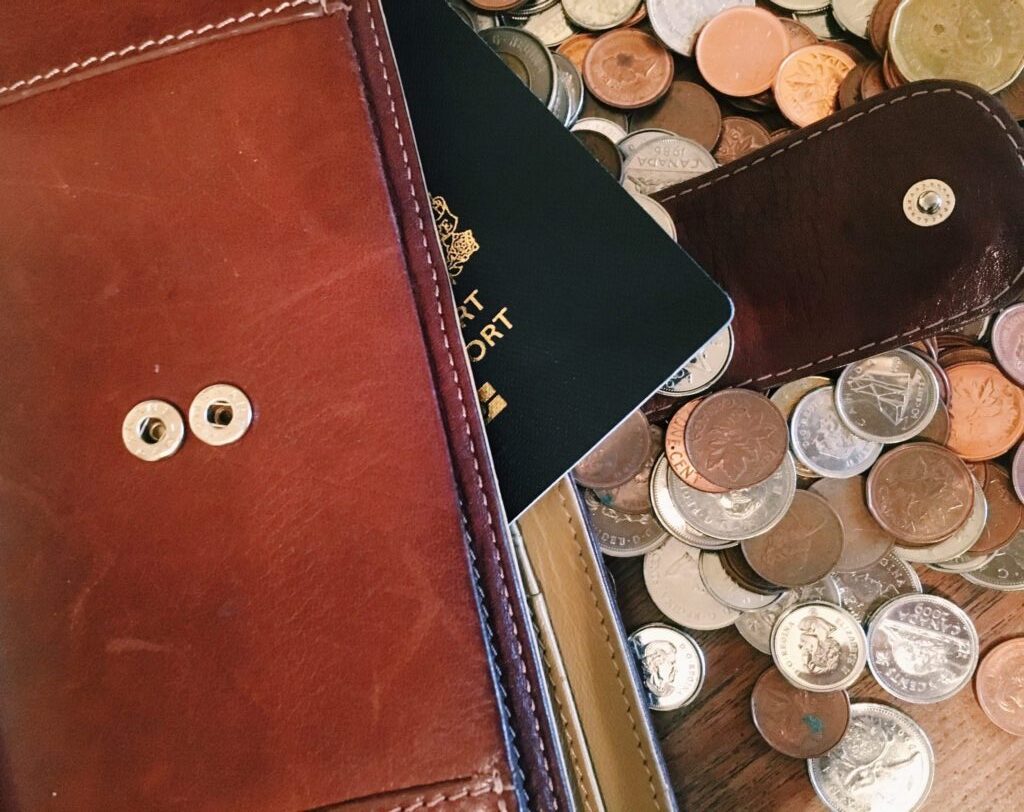Life is full of surprises – some exciting, and others not so much. Unforeseen expenses, like unexpected car repairs, medical bills, or emergency home repairs, can strain even the most carefully planned budget. In fact, according to a recent survey by StatCan, one in four Canadians are unable to cover an unexpected expense of $500. So, what do you do if you’re one of them? While it’s impossible to predict these financial setbacks, there are strategies you can use to manage them effectively without derailing your financial stability. Here’s our guide on how to handle unforeseen expenses with confidence.
What are some typical unforeseen expenses?
Unforeseen expenses can come from a variety of sources, often catching you off guard. Some of the most common ones include:
- Car repairs: whether it’s a flat tire, engine trouble, or a breakdown, car repairs can happen at any time and often come with a hefty price tag.
- Home repairs: from a leaking roof to a broken appliance or plumbing issues, home repairs are unavoidable and can quickly drain your savings.
- Medical bills: even with health insurance, unexpected medical emergencies or treatments can result in significant out-of-pocket expenses.
- Job loss or income reduction: losing a job or facing a sudden reduction in hours or salary can leave you scrambling to cover your everyday living expenses.
- Pet emergencies: vet bills can add up quickly if your pet falls ill or gets injured, leaving you with a large and unexpected expense.
- Family emergencies: whether it’s supporting a family member during a crisis or covering the costs of a sudden bereavement, family emergencies can create financial strain.
- Travel for emergencies: unexpected travel costs, such as last-minute flights to attend to a family emergency or funeral, can disrupt your budget.
These types of expenses are difficult to predict, but planning ahead can soften their impact.
How to handle unforeseen expenses
Here are some of our top tips for managing unforeseen expenses in order to mitigate their consequences.
Build an emergency fund
The most effective way to prepare for unforeseen expenses is by having an emergency fund. This is a separate savings account reserved for unexpected financial needs, such as urgent car repairs or medical emergencies. Financial experts recommend setting aside at least three to six months’ worth of living expenses. Having this buffer in place can prevent you from going into debt or scrambling to find funds when the unexpected happens. If you haven’t started an emergency fund yet, start small. Even saving a little each month can add up over time, giving you the peace of mind that you’ll be prepared when an unforeseen expense arises.
Reassess your budget
When you’re hit with an unexpected expense, it’s time to take a closer look at your budget. Prioritize the essential expenses – like housing, utilities, and groceries – and see where you can temporarily cut back. Whether it’s skipping dining out for a few weeks or pausing non-essential subscriptions, trimming your budget can help you cover the emergency without taking on debt. A flexible budget that adapts to life’s changes can make a big difference when the unexpected occurs.
Use credit wisely
Credit cards can be helpful in handling unforeseen expenses, but only if used carefully. If you don’t have the funds available to cover the expense right away, using a credit card can give you some breathing room. However, make sure you have a plan to pay off the balance as soon as possible to avoid high-interest charges that can snowball into bigger financial problems. If you find yourself relying on credit cards regularly for emergencies, it may be time to focus on building that emergency fund or seeking financial help to prevent accumulating more debt.
Consider a side hustle
If an unforeseen expense puts a significant strain on your finances, consider finding temporary or flexible work to bring in additional income. A side hustle can provide a financial cushion, helping you cover unexpected costs without depleting your savings or racking up debt. From freelance work to online gigs, there are many ways to earn extra income that can ease the burden of an emergency expense.
Negotiate or set up a payment plan
Sometimes, unforeseen expenses are unavoidable, like a sudden medical bill or a large home repair. If the cost is higher than you can manage in one go, don’t hesitate to negotiate. Many service providers – especially for medical or utility bills – are willing to work out payment plans. Breaking down a large expense into manageable monthly payments can help you stay on track without sacrificing your financial wellbeing.
Don’t hesitate to ask for help
If an unforeseen expense pushes you into debt or threatens your financial stability, it’s important to know when to seek help. Many Canadians find themselves dealing with overwhelming debt after an unexpected financial setback. If this happens to you, reaching out for professional advice can prevent the problem from worsening. At Spergel, we specialize in helping people regain control of their finances, even in the face of unexpected financial challenges. Whether you need debt relief options like a consumer proposal or advice on managing high-interest debt, our Licensed Insolvency Trustees can help you explore solutions that work for you. Licensed Insolvency Trustees are the only professionals in Canada legally able to file all forms of debt relief, making them well placed to advise you on your unique circumstances.
Learn from the experience
While you can’t predict every unexpected expense, you can learn from each one. Once you’ve dealt with the immediate financial need, take the time to review what happened and how you handled it. Did your emergency fund cover the cost? Did you have to rely on credit? Could your budget be better prepared next time? Use this experience to adjust your financial planning for the future.
Unforeseen expenses: FAQs
Here are some of the most commonly asked questions we receive about facing unforeseen expenses:
What is considered financial hardship in Canada?
In Canada, financial hardship typically refers to situations where an individual or household is unable to meet basic living expenses, such as housing, utilities, food, and medical care, due to insufficient income or overwhelming debt. This can result from job loss, illness, unexpected expenses, or other financial setbacks. In cases of severe hardship, individuals may seek relief through government assistance programs, debt restructuring, or insolvency solutions like consumer proposals or bankruptcy.
What are some examples of unforeseen circumstances?
Unforeseen circumstances are unexpected events that can disrupt your life or finances. Examples include sudden job loss, unexpected medical emergencies, major car or home repairs, family emergencies, or natural disasters. These situations often require immediate financial attention and can strain your budget if you’re not prepared with savings or a plan.
Which expenses are considered unexpected expenses?
Unexpected expenses are costs that arise suddenly and are not part of your regular budget. These include things like emergency medical bills, unplanned car repairs, urgent home repairs (like a broken furnace or leaky roof), vet bills for pet emergencies, or last-minute travel for family emergencies. They often require immediate payment and can disrupt financial plans if you’re not prepared.
Unforeseen expenses are a part of life, but they don’t have to derail your financial progress. With an emergency fund, a flexible budget, and a plan for using credit wisely, you can manage unexpected costs with confidence. If you find yourself overwhelmed by debt due to unforeseen expenses, Spergel is here to help. Our team of Licensed Insolvency Trustees can guide you through debt relief options to regain financial control. Don’t let an unexpected expense throw your finances into chaos – book a FREE consultation today to learn how we can help you get back on track.



















